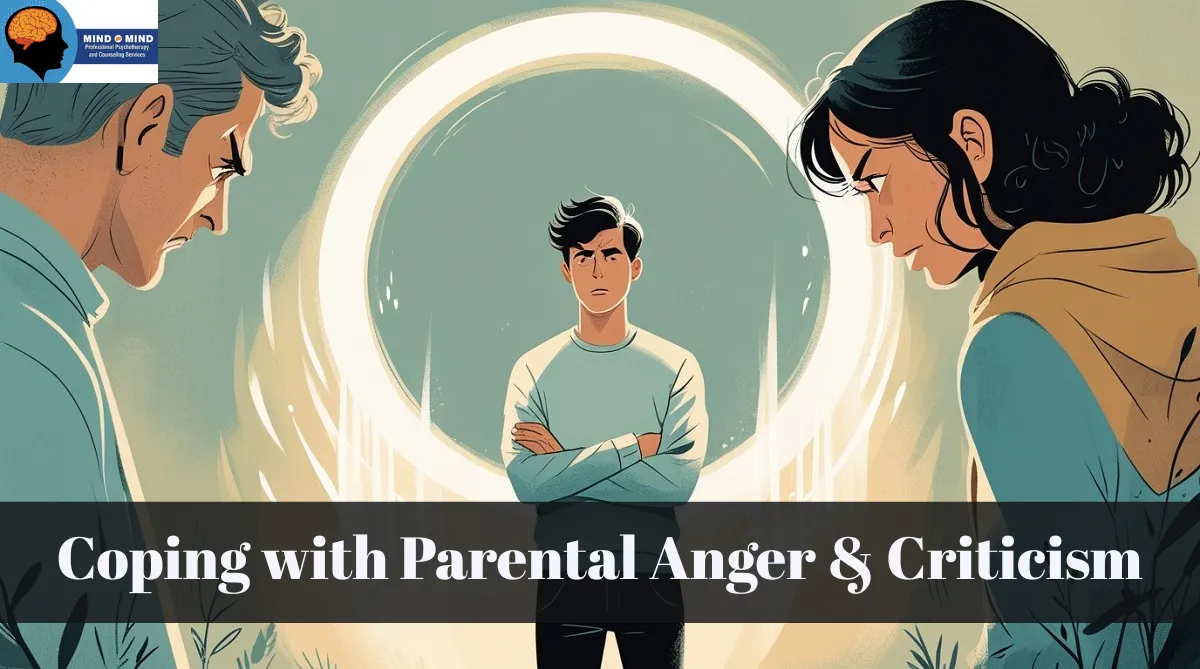Parents play a powerful role in shaping who we become. Their words, actions, and emotions often leave long-lasting marks on our self-esteem and relationships. While many parents mean well, some express their worries, stress, or disappointment through anger and criticism.
For children and even adult children, constant criticism can feel overwhelming. It may affect confidence, create tension at home, and make it difficult to develop healthy boundaries in other relationships. Understanding the parenting impact of anger and criticism—and learning how to respond—can open the door to healing and healthier family dynamics.
The Impact of Parental Anger and Criticism:
Anger and criticism, when frequent or harsh, leave more than temporary hurt feelings. They can influence the way children see themselves and others long into adulthood.
Some common effects of constant parental criticism include:
- Low self-esteem: Children may begin to believe they are “not good enough.”
- Perfectionism: The pressure to please parents can lead to unrealistic standards.
- Anxiety: Fear of being judged may make kids overly cautious or withdrawn.
- Relationship struggles: Early experiences often shape how we handle conflict and criticism in adult relationships.
This is why parenting impact goes beyond childhood. Even as adults, many people still carry the emotional weight of parental anger, feeling triggered or shut down in conversations with their parents.
Why Parents Criticize?
Understanding why parents behave this way doesn’t excuse the harm, but it can provide perspective. Some parents criticize or express anger because:
- They were raised the same way and repeat learned patterns.
- They believe criticism will “motivate” their child.
- They struggle with their own stress, mental health, or unresolved trauma.
- They lack healthy communication skills.
Recognizing these patterns can help shift the focus from “What’s wrong with me?” to “This is about their struggles, not my worth.”
The Importance of Boundary Setting:
When criticism and anger become hurtful, boundary setting is essential. Boundaries are limits we create to protect our emotional well-being. They do not mean cutting ties with family altogether (unless necessary for safety). Instead, boundaries provide a clear structure for how we want to be treated.
Examples of boundaries with parents:
- Verbal boundaries: “I want to hear your opinion, but I need you to speak respectfully.”
- Time boundaries: Spending less time in environments that feel toxic.
- Topic boundaries: Avoiding subjects that often lead to conflict.
- Emotional boundaries: Reminding yourself that their anger is about them, not about your worth.
Boundaries are not about controlling others—they are about protecting yourself. Over time, consistent boundary setting teaches parents how to interact in healthier ways.
Practical Steps to Cope:
Here are some practical ways to manage the challenges of parental anger and criticism:
- Pause before reacting:
Instead of reacting defensively, take a deep breath. This helps you respond calmly rather than escalating the conflict. - Use “I” statements:
Express your feelings without blame. For example: “I feel hurt when I’m criticized. I need more support in our conversations.” - Limit exposure:
If certain situations always lead to anger, it’s okay to step away or reduce contact until healthier communication is possible. - Seek outside support:
Talking with friends, mentors, or professionals can provide strength and perspective. - Consider family therapy:
Sometimes professional guidance is necessary to break long-standing cycles of conflict. - Family therapy:
Creates a safe space where everyone can learn healthier communication and boundary setting skills.
Healing the Inner Child:
For many adults, the hardest part of coping with parental anger is healing from old wounds carried since childhood. This process may involve:
- Self-compassion: Reminding yourself you did not deserve harsh criticism.
- Journaling: Writing down your thoughts and feelings to release built-up emotions.
- Affirmations: Replacing critical voices with supportive ones, such as, “I am enough as I am.”
- Therapy: Exploring how early parenting impact shaped your sense of self and learning strategies for recovery.
Healing doesn’t mean forgetting the past. It means creating a new relationship with yourself—one built on kindness, respect, and inner strength.
When Distance May Be Necessary?
In some cases, despite repeated efforts, parents may not respect boundaries. If the relationship remains harmful, creating more distance may be the healthiest choice. This does not mean you don’t love your parents—it means you value your mental health and peace of mind.
Choosing limited contact or emotional distance can be an act of self-care, not rejection.
Final Thoughts:
Parental anger and criticism can deeply shape how we see ourselves and interact with others. The parenting impact of harsh words may last long into adulthood, but it doesn’t have to define your life. Through boundary setting, self-compassion, and—when needed—family therapy, it’s possible to create healthier relationships and protect your emotional well-being.
Remember: you cannot always change how your parents behave, but you can change how you respond and how you care for yourself. Healing begins when you give yourself the respect and compassion you deserve. And if you ever need guidance on this journey, Mind O Mind is here to support you with care and understanding.


